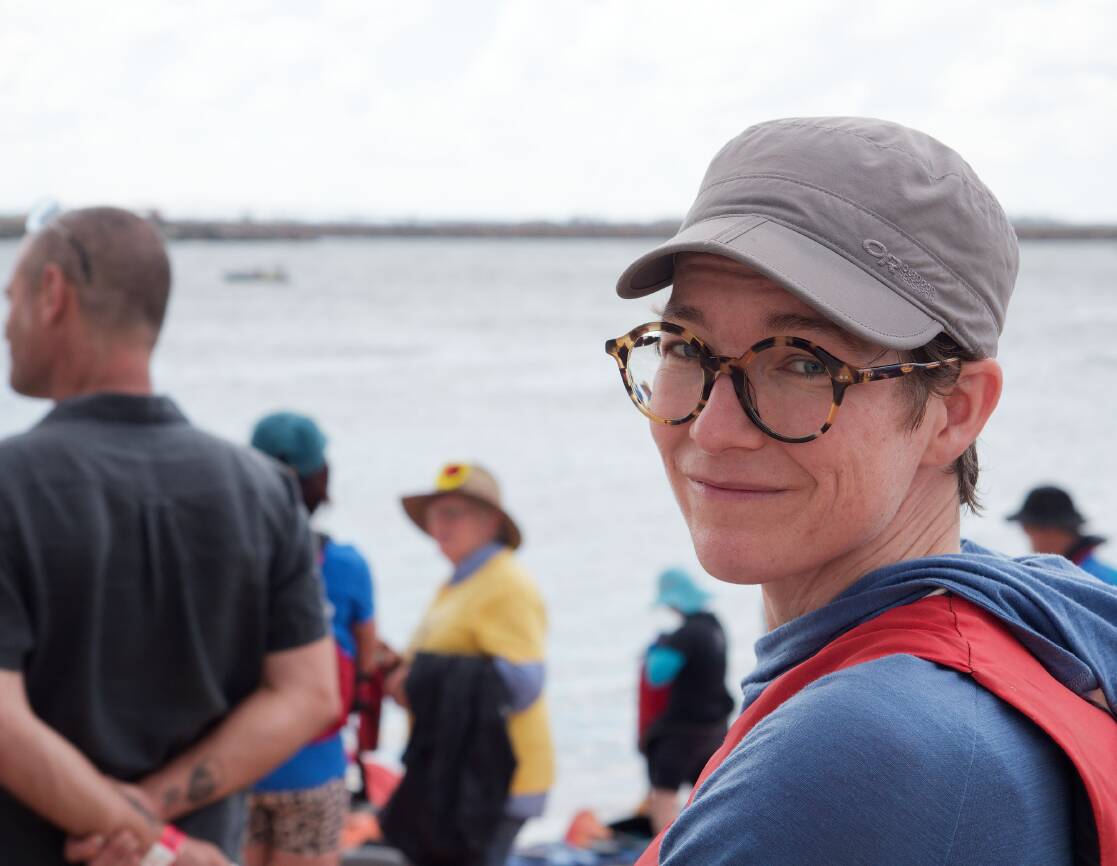
My hometown in Florida was affected by BP's Deepwater Horizon oil spill in 2010. Now I work to protect other communities from fossil fuel negligence.
That's how I found myself in the Port of Newcastle in November, where I was one of the 109 people arrested for kayaking in a way that interfered with others' use of the port. (The charge was dismissed with no conviction on Thursday in Newcastle Local Court)
November was my first time in Newcastle, but I wasn't the first settler in my family to turn up here. My great grandfather Denis Costello migrated to Australia around 1927, and he lived in Hamilton in the 1930s and 40s. Grandad Denny was a railway worker, a fitter's assistant. He was always a proud union member. He passed on his dedication to workers to his daughter, my grandmother, Ellen Costello. She married my grandfather at Sacred Heart Cathedral in Hamilton and left Newcastle in the 1940s for the US. They settled on the Gulf Coast of Florida, which is where I grew up.
My Irish-Australian grandmother was a committed Catholic, and under her influence I became Catholic. She taught me that the church's history of colonisation was a grave moral error, and that Christians must protect the vulnerable. I moved to Australia in 2015, and became a citizen in 2023.
I joined the action in the channel to demand that the Australian government do two things: tax the huge profits made by companies that continue to export fossil fuels, and stop the development of fossil fuel projects, such as those destined for export from Newcastle. When burnt, coal from Newcastle contributes almost 1 per cent of global carbon emissions, close to the total amount of all sources in Australia. These emissions are fuelling extreme weather events that devastate communities here and around the world.
We have to stop mining, burning, and exporting coal and other fossil fuels if we want to inhabit a livable world.
To do this while protecting workers, we must hold fossil fuel companies accountable. As historians have shown, fossil fuel companies have been informed that emissions cause climate change since 1959. Fossil fuel companies have conducted studies about the relationship between emissions and global warming, discovering as early as the 1970s that continued and increased emissions would have severe environmental impacts.
Despite this knowledge, fossil fuel companies have campaigned to misinform the public about the risks of burning fossil fuels. They have done this to ensure their continued and increased market share. They've knowingly sold our wellbeing for their profit. It's time they took responsibility, including by funding an economic and industrial transition that ensures coal profits support continued prosperity for workers and communities in coal-dependent regions such as the Hunter.
The town where I grew up in Florida was affected by fossil fuel negligence when BP's Deepwater Horizon oil rig exploded, killing 11 workers and setting off the largest marine oil spill in history. The oil well couldn't be capped for 87 days, as time and again BP's tools failed. My father was a clam farmer, and no one in the seafood industry knew how that disaster would affect their livelihoods.
That event in 2010 committed me to protecting other communities that bear the cost of fossil fuel extraction. In Australia, these include First Nations people whose lands were never ceded, workers who require support through the energy transition, everyone affected by flood, fire, and extreme weather, and the generations who will follow. For their sake, we cannot let the fossil fuel companies take the money and run.
I joined the Rising Tide People's Blockade in November to express the moral outrage that many Australians feel. I joined to support communities like the one I come from: communities that suffer when extractive industries take the money and run. Actions like mine are intended to pressure the government to ensure that industry serves the common good rather than its own wealth.
- Dr Alda Balthrop-Lewis (pictured above at November's harbour blockade) is a senior research fellow at Australian Catholic University. She is the author of Thoreau's Religion, and her research focuses on the place of religion in environmental ethics and politics. She lives on Wurundjeri country in Melbourne.







